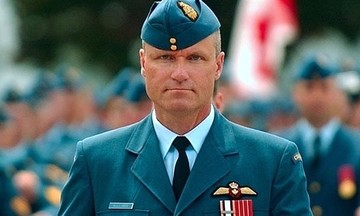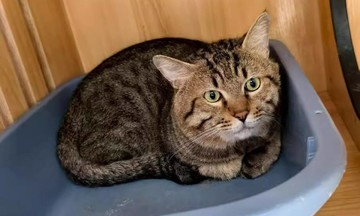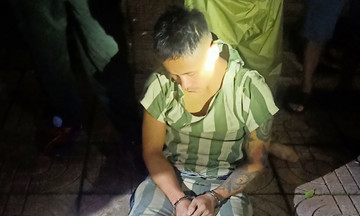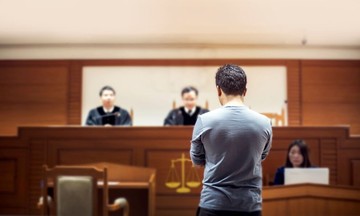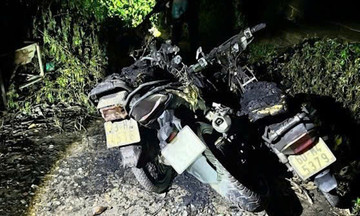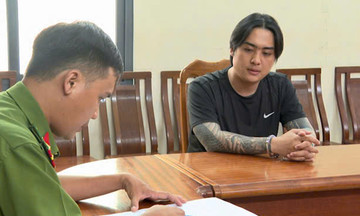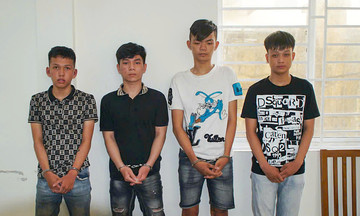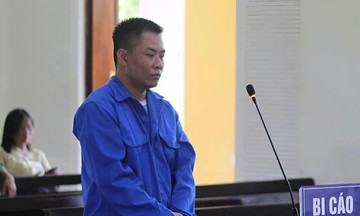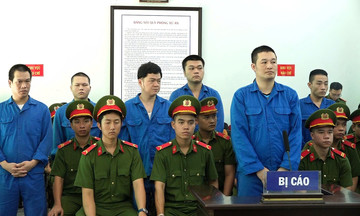On 20/3/2013, Dominican Republic officials discovered over 680 kg of cocaine, worth 20 million euros, hidden in 26 suitcases aboard a private jet piloted by Pascal Fauret and Bruno Odos.
The Dassault Falcon 50 jet was scheduled to fly from Punta Cana Airport to a small airport near Saint-Tropez in southern France. The sheer volume of luggage couldn't fit in the cargo hold, forcing some into the cabin's restroom.
Dominican Republic police arrested four Frenchmen at the scene: the two pilots, a crew member, and a passenger.
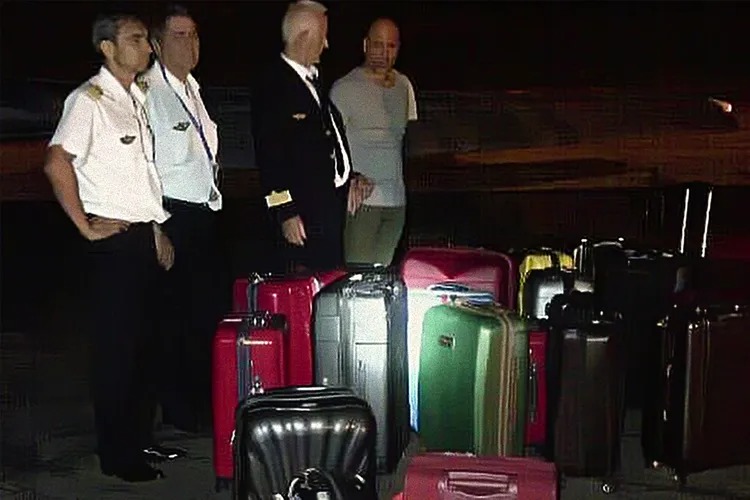 |
The four men arrested at the scene with 26 suitcases containing cocaine. Photo: Netflix |
The four men arrested at the scene with 26 suitcases containing cocaine. Photo: Netflix
Pascal and Bruno, both with distinguished aviation careers, denied any knowledge of the cocaine. They had served as fighter pilots in the French navy and air force, transporting nuclear weapons before transitioning to commercial aviation. "They tell me the day of the flight, and I fly. I never know the purpose of the trip," Pascal said, insisting pilots lack the authority to inspect passenger luggage. "If I open them, passengers can complain," he added.
Their lawyer argued that under international law, commercial pilots are not responsible for cargo unless proven they knew it was illegal.
The jet belonged to French businessman Alain Afflelou, owner of an optical chain, and was leased to SN-THS, a private jet charter company, for $6,250 per hour. Also arrested were crew member Alain Castany and passenger Nicolas Pisapia. Around 20 Dominican Republic police and customs officers were implicated, along with alleged broker Frank Colin.
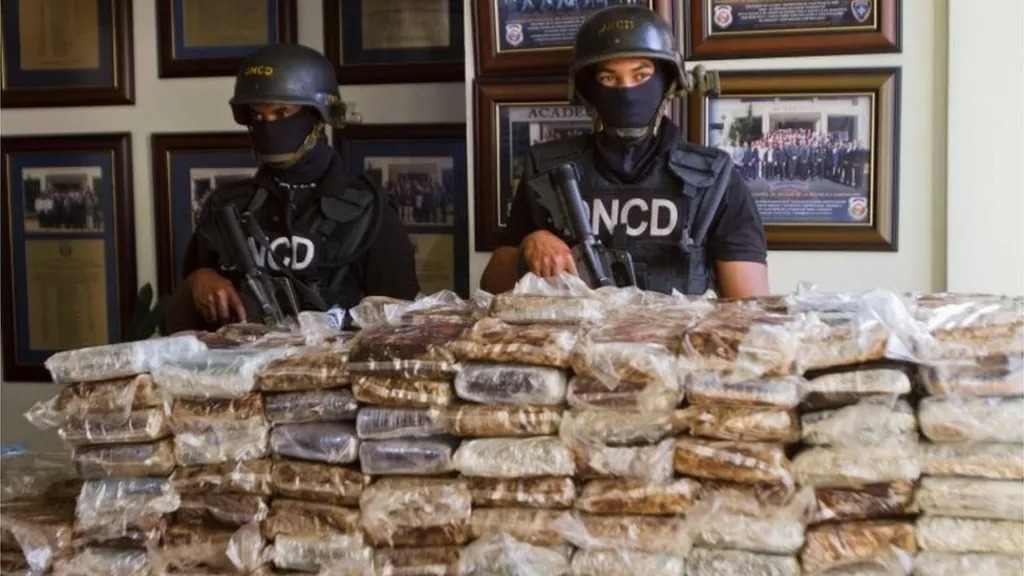 |
Packages of cocaine found inside the suitcases on the plane. Photo: AFP |
Packages of cocaine found inside the suitcases on the plane. Photo: AFP
Colin allegedly contacted Castany to find a private jet for transatlantic flights, and Castany directed him to SN-THS. Colin denied involvement, claiming he arranged flights for someone he met at a nightclub named "Daryan." Before this incident, Pascal and Bruno had flown two other trips, one to Saint-Tropez and one to Ecuador, with Pisapia also on board.
Dubbed "Air Cocaine" by the French media, the case garnered significant attention. A 2014 Canal+ documentary explored how easily illegal goods were smuggled through France, highlighting weaknesses in private plane control systems. Reporters flew with fake cash from a French airport to Guernsey, bypassing empty customs offices, and demonstrated how private jets could smuggle migrants between France and the UK.
Nicolas Barraud, French customs communications director, explained the lack of visible customs officers at smaller airports was due to intelligence-led, rather than uniformed, surveillance. He noted that flights from South America or the Caribbean raised red flags. Barraud stated that private jets represented a small fraction of airborne drug trafficking, with most customs seizures involving drug mules on commercial flights, typically paid 600 euros to carry about a kilogram of cocaine capsules. Hiring drug mules was less risky and costly than chartering a private jet, especially for transatlantic flights, which attract greater scrutiny.
After 15 months in jail, the pilots were released in June 2014 but forbidden from leaving the Dominican Republic pending trial. In August 2015, they received 20-year sentences for drug trafficking. Of the 10 Dominicans charged with complicity, six were acquitted, and four received 5- to 10-year sentences. Colin received a 12-year sentence, and Ali Bouchareb, considered the ringleader, received 18 years.
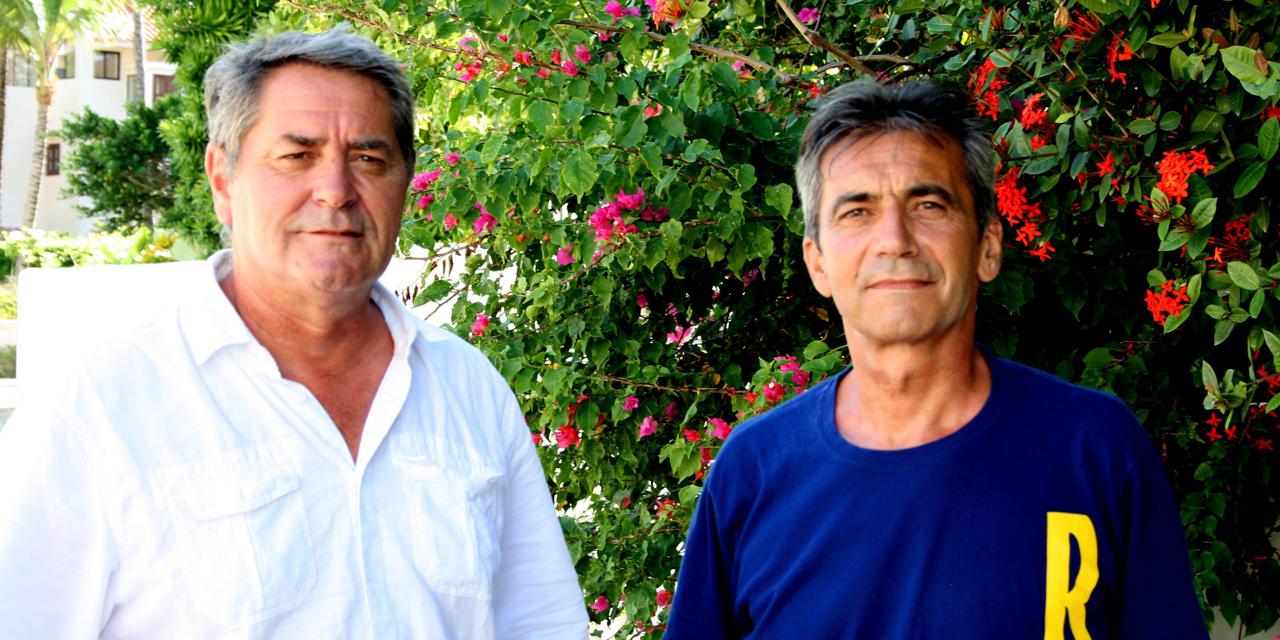 |
Pascal Fauret (left) and Bruno Odos. Photo: Europe1 |
Pascal Fauret (left) and Bruno Odos. Photo: Europe1
Released on bail in October 2015 pending appeal, Pascal and Bruno, despite travel restrictions, reportedly escaped back to France aided by a French politician, former naval officers, and ex-intelligence agents—contacts from their military service. The French foreign ministry denied involvement.
A French TV station reported they left on a yacht on 28/10/2015, transferred to a larger vessel to the French Antilles, and then flew commercially to Paris under their real names. In a post-escape press conference, Pascal claimed their 20-year sentences were "solely because we are French." He described two weeks in solitary confinement followed by a 6 m2 cell.
Reapprehended in France in November 2015, their lawyer stated their return was "not to flee justice but to seek it." In February 2016, a Dominican Republic appeals court upheld their sentences. In 2019, a French court sentenced them to six years for alleged involvement.
Two years later, on 9/7/2021, they were acquitted after a key, unnamed figure testified they were "duped" and unwitting pawns. Their story is featured in the documentary series Cocaine Air: Smugglers at 30,000 Ft, where they state they haven't flown since 2013. Filmmakers Olivier Bouchara and Jerome Pierrat admitted uncertainty about the pilots' knowledge of the smuggling. "Sometimes, filming a scene, we would look at each other and think, ‘Wait, maybe they knew, maybe they were in on it.’ Or other times, we would stumble on a detail that would make us doubt everything again," Olivier told TIME last June.
Tue Anh (People, France24, Vice)



